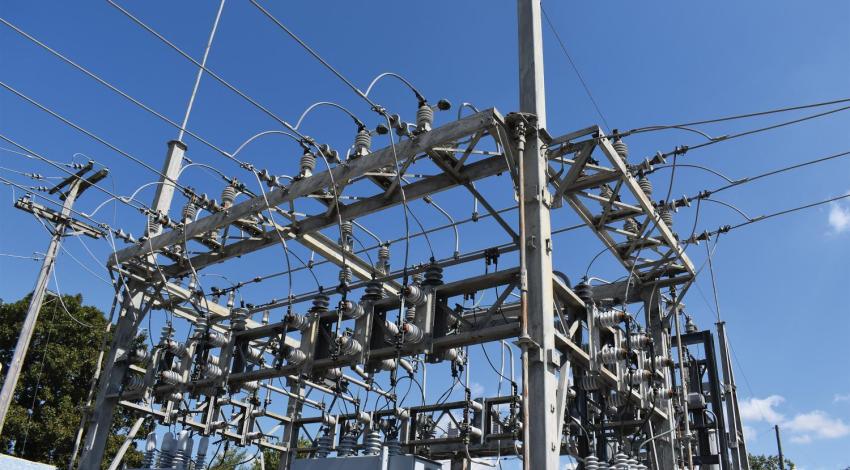Jack DiLauro hadn’t really thrown a baseball meaningfully for many years, but as a former major leaguer — a World Series champion, no less — he figured it would be like riding a bicycle.
DiLauro is a member of Carrollton-based Carroll Electric Cooperative, and he’s also an Akron native and a member of the Summit County Sports Hall of Fame. When Carroll Electric and a few other Ohio co-ops hosted a business development event at an Akron RubberDucks minor league baseball game in 2017, it seemed natural to have him throw out the ceremonial first pitch.
He bounced it — several feet in front of the plate.
So, when he got another opportunity at a similar co-op event at a RubberDucks game last season, he took no chances. “I went out and bought a baseball and started throwing it against the wall in the garage to get ready,” he says, adding, in his defense, that he has had hip surgery since his baseball career ended. “I went out to the mound and I bounced it again. I called it a waste pitch because I must have been ahead of the hitter. I still had a great time.”
DiLauro spent 10 years playing professional baseball, mostly in the minor leagues in the Detroit Tigers organization. Though his stats were respectable in the minors, DiLauro says he was never overly optimistic about his chances to break onto a major league roster. Then, just before the 1969 season, he was traded to the Mets.
The New York Mets had been established as a major league team in 1962 and had been one of the worst teams in baseball up to that point — losing more than 100 games in five of their first seven seasons. Going into 1969, though, the team seemed poised for a breakthrough, in large part because of its stacked pitching staff.
“My first reaction was ‘oh crap.’ I’m thinking that I have no way of cracking that lineup,” DiLauro says. “To be honest, I had it in my head that it was going to be my last year. We didn’t make any money in those days, and I was married. It became very stressful.”
A funny thing happened, though. DiLauro performed well in spring training, and when young hotshot pitcher (and future Hall of Famer) Nolan Ryan was injured, DiLauro got his chance. He made his major league debut on May 15 — working two scoreless innings in relief against the Atlanta Braves, giving up a single base hit and striking out one batter — and stuck with the roster.
DiLauro’s best outing came against the Los Angeles Dodgers in early June. “I started against the Dodgers and I threw a nine-inning, two-hit ballgame, retired the last 16 guys. So that was cloud nine for a while,” he says.
Even with their strong pitching, the Mets struggled early in the season. They entered June with more losses than wins, and it looked as if the Chicago Cubs would run away with the division title. In one of the all-time historic turnarounds, however, the “Amazin’ Mets” won 38 of their last 49 games, the Cubs collapsed, and New York went on to become the “Miracle Mets” when they won the 1969 World Series title over the Baltimore Orioles.
DiLauro had a respectable season. In 632/3 innings, he compiled a record of one win and four losses with a save and a stellar 2.40 earned-run average. He didn’t pitch at all in the postseason, though, and after the World Series, his rights were claimed by the Houston Astros. He bounced around to a few other minor league teams until 1972, when it became clear to him that he wasn’t going to earn his way back to the majors. At 29 years old, DiLauro decided that he’d had enough. He quit baseball and moved back to Ohio.
“I had my roots here, I was married, there was no reason for me to go anywhere else,” he says. DiLauro managed a chain of sporting goods stores after returning.
He occasionally serves as an unofficial Carroll Electric co-op ambassador at business development events like those minor league baseball outings. He’s slated to appear at two such games this summer, in Akron and Toledo.
In his short major league career, DiLauro pitched against some of the biggest names in the history of baseball — like Willie Mays, Willie Stargell, Willie McCovey, Billy Williams, even Hank Aaron. “I only pitched against Willie Mays once, and I don’t know if he was scary [to pitch against], but I was in awe,” he says. “I walked him on four straight pitches. I don’t remember ever doing that.”
DiLauro heads back to New York every now and then for “Miracle Mets” reunions, including last year for the 50th anniversary of that “amazin'” year.










